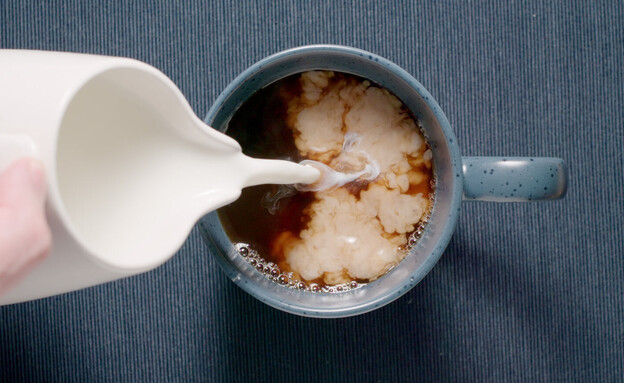Calories and protein
A soy drink has about 38 calories per 100 ml, and 3 grams of protein – an impressive figure for those looking for a protein-rich substitute. In contrast, oat milk contains 44 calories and only 0.3 grams of protein for the same amount.
conclusion: Soy milk wins here – more protein, less calories, and is simply ideal for those looking for plant-based protein.
Effect on blood sugar levels
A soy drink contains only 2.3 grams of sugar (about half a teaspoon of sugar) per 100 ml, so it does not dramatically affect blood sugar levels thanks to its low sugar content. In contrast, an oat drink contains 3.3 grams of sugar (almost three quarters of a teaspoon of sugar) , which may lead to a faster increase in sugar levels.By the way, it is important to note that there are different types of soy and oat drinks, some of which contain More sugar and some less.
conclusion: Soy milk is a better choice for maintaining stable blood sugar levels.
nutritional values
Nutritionally, soy drink is rich in vitamins such as D and B12 and also contains calcium (120 mg). On the other hand, an oat drink contains more dietary fiber (1.4 grams) that can help digestion and maintain a feeling of satiety.
conclusion: The soy drink provides the body with more significant nutritional values, while the milk from the fox drink mainly contributes a good amount of fiber.
Similar to cow’s milk
Both soy and oat drinks are popular alternatives to cow’s milk, but they differ in usage and texture. The soy beverage is more similar to cow’s milk in its texture and nutritional content, making it an excellent option for use in recipes and hot drinks. Oat drink, on the other hand, offers consumers a sweeter taste and some people prefer to use it as a milk substitute for coffee or smoothies.
conclusion: The soy drink is more similar to cow’s milk in both texture and nutritional content, while the oat drink offers different flavors that can match different dishes.
Bottom line: Soy milk seems to be the leading nutritional choice of the two, and is suitable for those looking for a low-calorie, protein-rich, low-sugar milk substitute that contributes to maintaining stable sugar levels. In addition, it contains important vitamins and minerals such as D, B12, and calcium. In contrast, the oat drink excels in its high fiber content. The choice between the two depends on personal needs and dietary preferences and taste.
The writer is Ziv ZafarNi Clinical and sports dietitian
